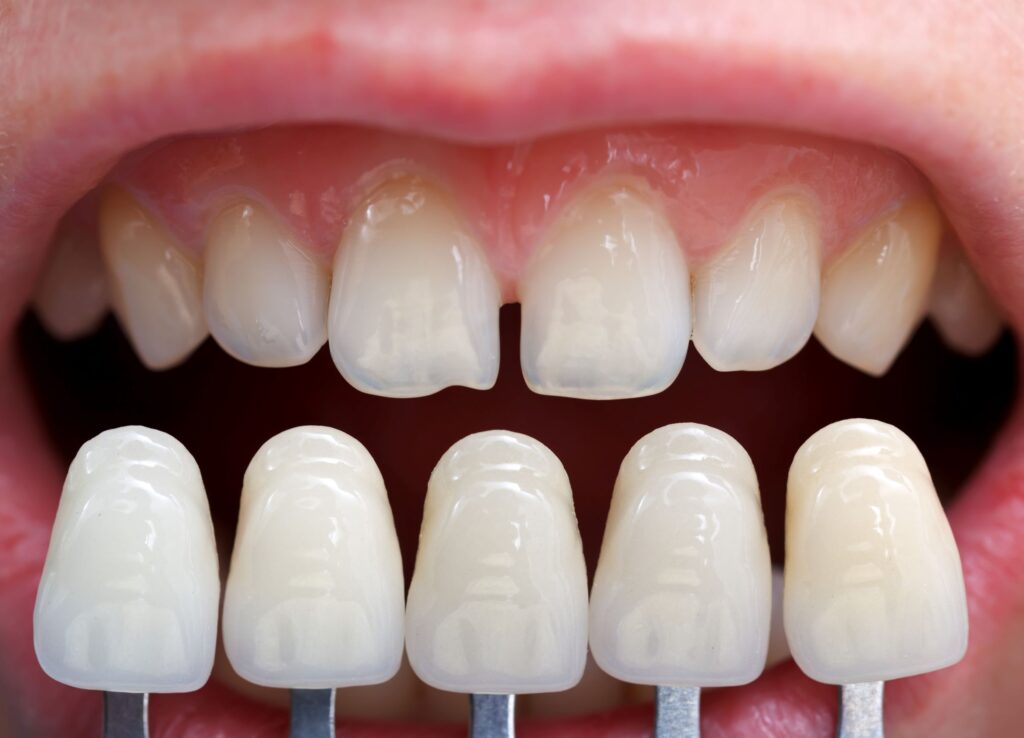
Are you frustrated by aesthetic imperfections in your smile that detract from your appearance? Issues like chips, cracks, stubborn stains, mild overcrowding, or slight gaps can leave you so self-conscious that you avoid spending time with others. After all, no one wants to feel like they’ll be judged for their dental condition.
Thankfully, your dentist can mask one or several problems simultaneously by fitting you with porcelain veneers. These versatile prosthetics are bonded to the front surface of your teeth to hide flaws and boost your confidence. However, many patients avoid this procedure because they have heard it might result in tooth sensitivity. Continue reading to learn more about why this sometimes happens and what you can do to safely set your concerns aside!
What Are Porcelain Veneers?
These restorations are thin shells made of ceramic that are customized to match the color, shape, and size of your natural teeth. Then, they’re bonded in place to hide minor concerns and enhance your appearance. They’re durable enough to last 15+ years with the right care and are strong enough to shield the underlying tooth from potential harm.
Do Veneers Cause Dental Sensitivity?
Although veneers are only about as thick as a contact lens, your dentist must remove a thin layer of enamel to align correctly without looking overly bulky. Once this protective outer layer has been thinned, you might develop some slight sensitivity because more of the tender underlying layers are exposed. This is especially true when eating anything overly hot, cold, hard, or spicy, which tends to exacerbate discomfort. Fortunately, this effect is usually temporary and resolves itself after a few days or a couple of weeks.
How Can I Manage Dental Sensitivity from Veneers?
If you’re feeling sore after being fitted with your prosthetics, there are several things you can do to ease your symptoms until they subside. You can try:
- Watching what you eat. Limit your consumption of overly acidic foods like citrus fruits, coffee, or soda that can further erode your enamel. Also, stick to milder temperatures at first until you’ve adjusted.
- Address aches. It’s usually perfectly safe to take an over-the-counter pain medication like Tylenol or ibuprofen to reduce unwanted sensations.
- Rinse with saltwater. Salt can act as a natural anti-inflammatory and disinfectant. Rinsing with salt water can reduce swelling and balance the pH levels in your mouth.
Although it’s possible to feel a little sore after getting veneers, you likely won’t have to live with the less pleasant side effects for long!
About the Author
Dr. Beverly Rose has 28+ years of experience helping people enhance their lives by improving their dental health. She earned her doctorate in dental medicine from the University of Florida College of Dentistry and has been in private practice in the Melbourne area since 1996. She also has undergone extensive training in a wide variety of techniques, including cosmetic dentistry, so you can trust that your smile is in good hands. She creates fully individualized treatment plans to meet your unique needs, then utilizes state-of-the-art equipment to improve patient comfort and provide increasingly accurate results. If you’re interested in veneers, you can request a consultation on the website or call (321) 259-4666.
